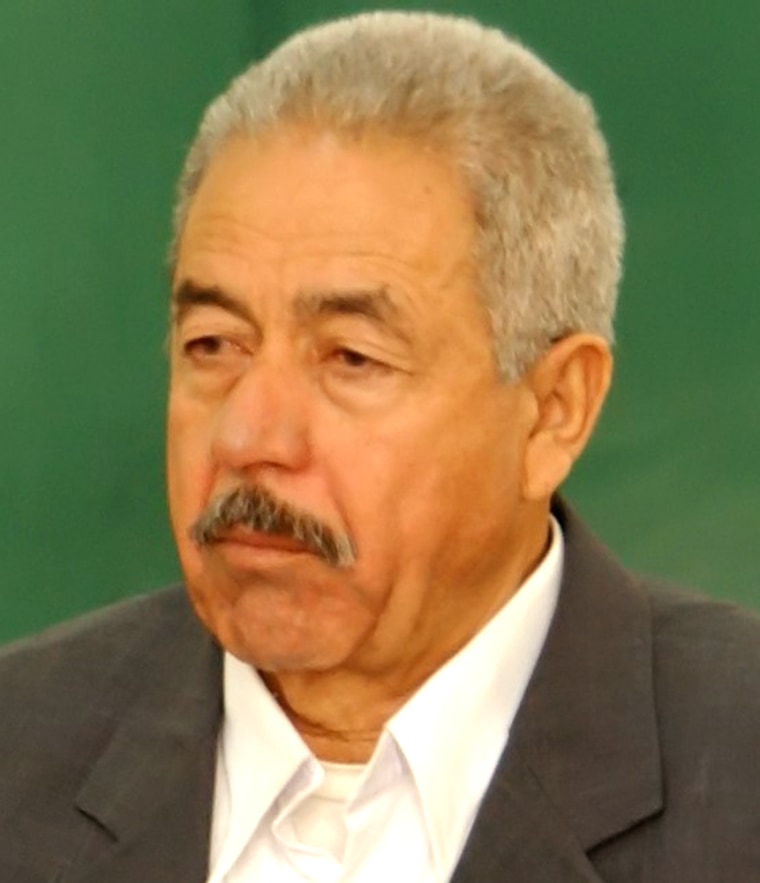Recently gathered information links one of Saddam Hussein’s most notorious former generals to the massacres of Shiite Muslims in southern Iraq and could result in new charges against the man who allegedly ordered the use of poisonous gas against Kurds in the north, a human rights group said Thursday.
Gen. Ali Hassan al-Majid, known as “Chemical Ali,” was involved in the massacre of at least 34 Shiite men in the southern city of Basra in 1999, the group, Human Rights Watch, said in a new report.
“Al-Majid’s role in the genocide against the Kurds is well-known, but it appears his hands are dirty in Basra in 1999 as well,” Joe Stork, director of the group’s Middle East and North Africa division, said in a statement.
Independent investigation by rights group
Investigators interviewed victims, relatives and eyewitnesses and examined documents and evidence from mass graves, said the group, which is based in New York.
Human Rights Watch obtained a handwritten list that named 120 young men who were executed from March to May 1999 for taking part in protests over the assassination of Grand Ayatollah Muhammad Sadiq al-Sadr, a senior Shiite cleric.
The remains of 34 men were found in a mass grave in May 2003, and family members have identified 29 of them.
Among the documents the group found is an apparent execution list, which names 120 men who were executed by the “order of the Commander of the Southern Sector,” a post held by al-Majid at the time.
Al-Majid earned his nickname for allegedly ordering the use of poisonous gas against minority Kurds in northern Iraq, a crime with which he has been charged by an Iraqi court. Iraqi officials have not set a trial date yet.
In the same statement, Human Rights Watch expressed concern that authorities were not respecting al-Majid’s civil rights in a year of interrogations during which he had no access to a defense attorney.
“The alleged crimes are so serious, it’s very important to get these trials right,” Stork said. “The Iraqi Special Tribunal must be independent of political pressure and adhere to international standards.”
